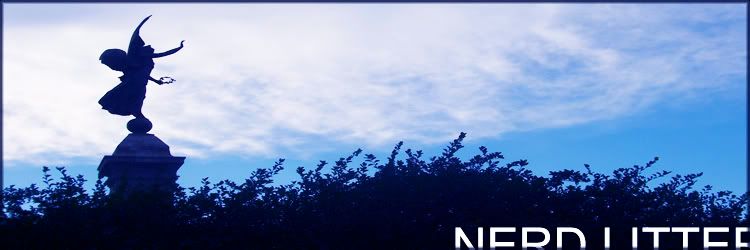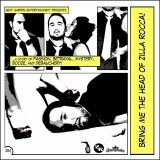Desert shores and the forest green and a limitless life
 Art by SkyShaper Last year, I wrote about the decline of mystery. It led off a discussion of one of my favorite albums, Van Morrison's Veedon Fleece, but it's also a topic I've been thinking about generally ever since. In this era of accessibility, so few albums are willing to risk being just a little inscrutable. Whatever they have to offer is laid bare on the first few listens, and repeat spins rarely yield anything new. There's no slow bloom of songs unveiling their layers. There's no sense of something lurking beyond the horizon line, just out of reach. That's why I'm so thankful for Shearwater's recently released Rook. In just over thirty-eight minutes, it's an album that feels refreshingly epic. It's not just a collection of songs, but a genuine song-cycle with overarching themes, recurring images, and an arc of moods. It eludes as much as it evokes, often venturing into the realm of myth and allegory. The music is beautifully impressionistic too, rising and ebbing like symphony suites. Lush strings swell into the action, the woodwind sections flutter up weightlessly, and Thor Harris' drumming alternates between urgency and omen. In fact, in spite of the oft-repeated (and deserved) comparisons to Talk Talk's Spirit of Eden, the album Rook reminds me most of is Veedon Fleece itself. Like Van Morrison, lead singer Jonathan Meiburg knows how to wring the most out of his voice's upper range. Like his predecessor, the bulk of his lyrics address the strange, often transformative overlaps between nature and human nature. Both write vividly about anti-heroes, dreamers, and wayfarers, one part Romantic poet for every two parts rock musician. And most significantly of all, both inject serious doses of mysticism and mystery into their works. In a telling tip-off, Meiburg acknowledges the debt by starting "Home Life" with the opening line from Veedon Fleece's "You Don't Pull No Punches, But You Don't Push The River": "When you were a child, you were a tomboy." "Home Life," like Morrison's song, is the longest track and one of the album's key centerpieces. The song opens with a girl looking out of her window, conjuring up the world's possibilities. "You were tracing the lines of the globe with your fingers--/ Cool rivers, white waste, desert shores, and the forest green/ And a limitless life/ In the breath of each tide and the bright mountains rising," Meiburg sings at the threshold of revelation. His voice swims up like plumes of smoke; a gentle dulcimer and shy piano sound perfectly matched together. With every verse, Meiburg expands his scope as the music follows suit. The girl comes of age, witnessing how destructive humanity can be. But in a turn toward the fantastic, she also receives her destiny at a river's edge: "'You are bound to your life like a mother and child,/ You will cling to your life like a suckering vine,/ And like the rest of our kind, you will increase/ And increase past all of our dreaming.'" It sounds hopeful at first, full of bounty and prosperity. But the more I hear it, the more it also takes on sinister connotations--confinement, overgrowth, and, with the vine imagery, expanse at the expense of other life. Even after my fortieth listen, the lines still haven't become any less beguiling or revealing. The only greater mystery is how Shearwater managed to produce songs this thrillingly limitless. * MP3: "Home Life" - Shearwater from Rook [Buy it] * Website: Shearwater |





















Comments on "Desert shores and the forest green and a limitless life"
post a comment